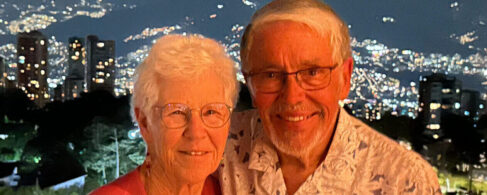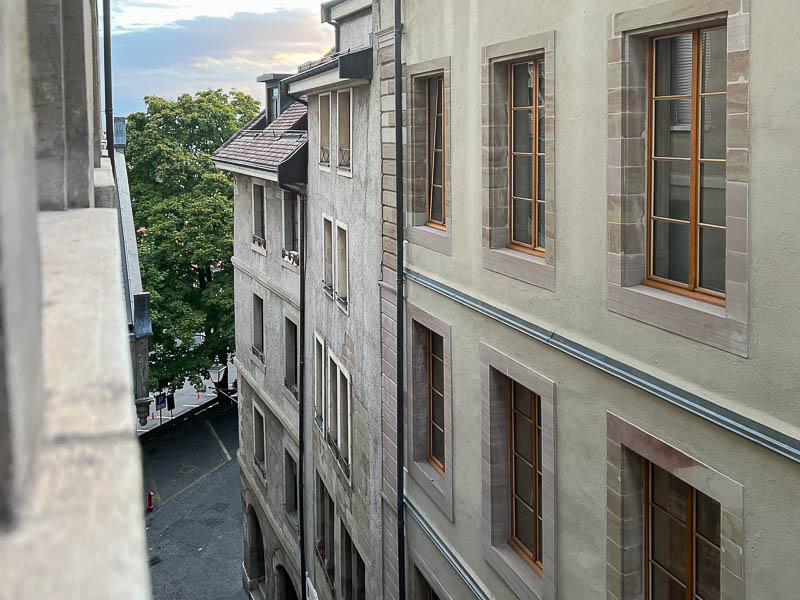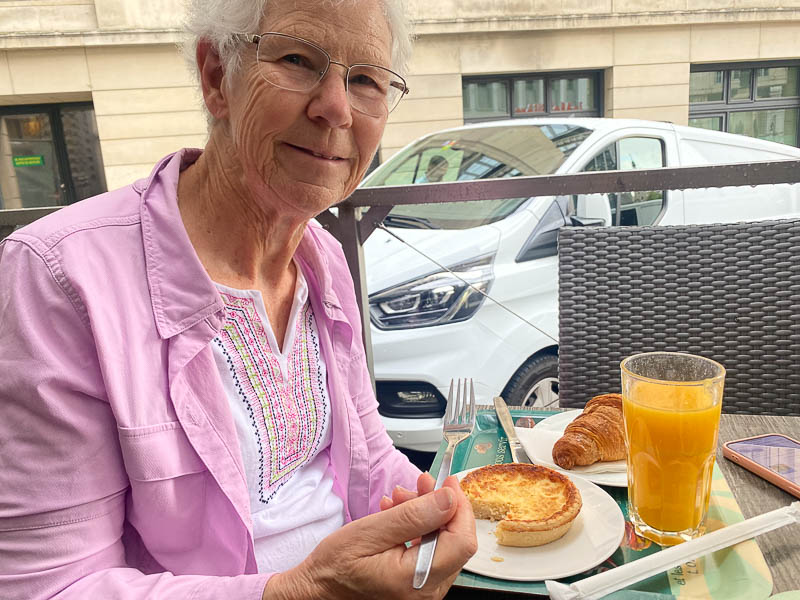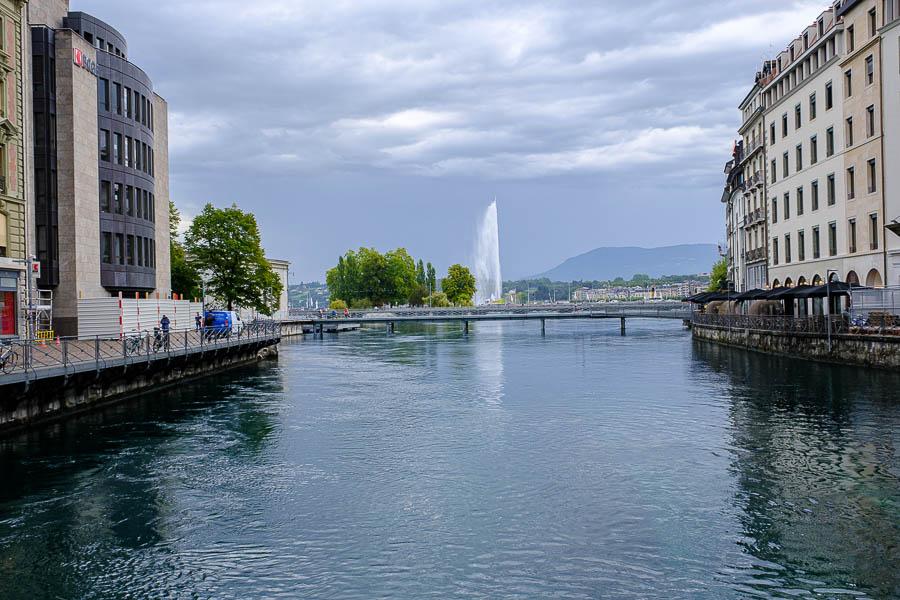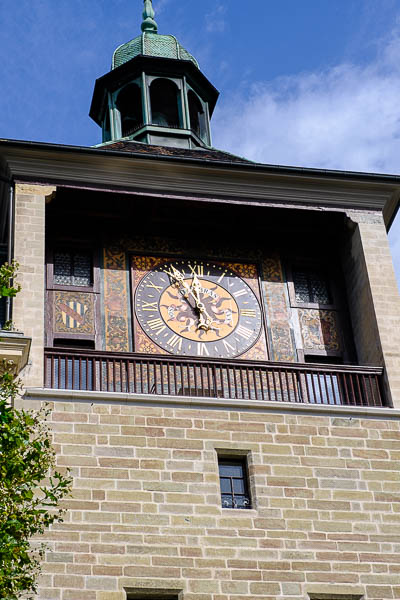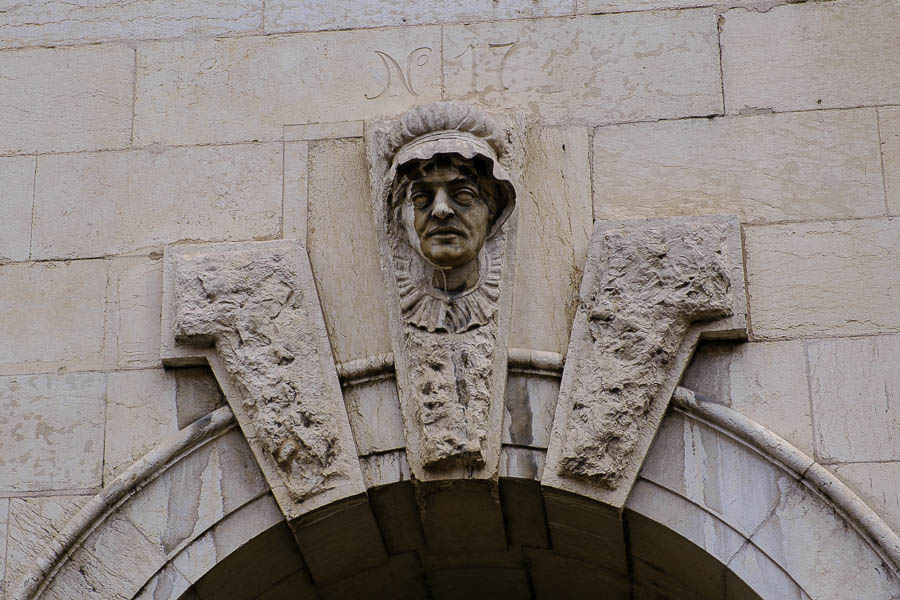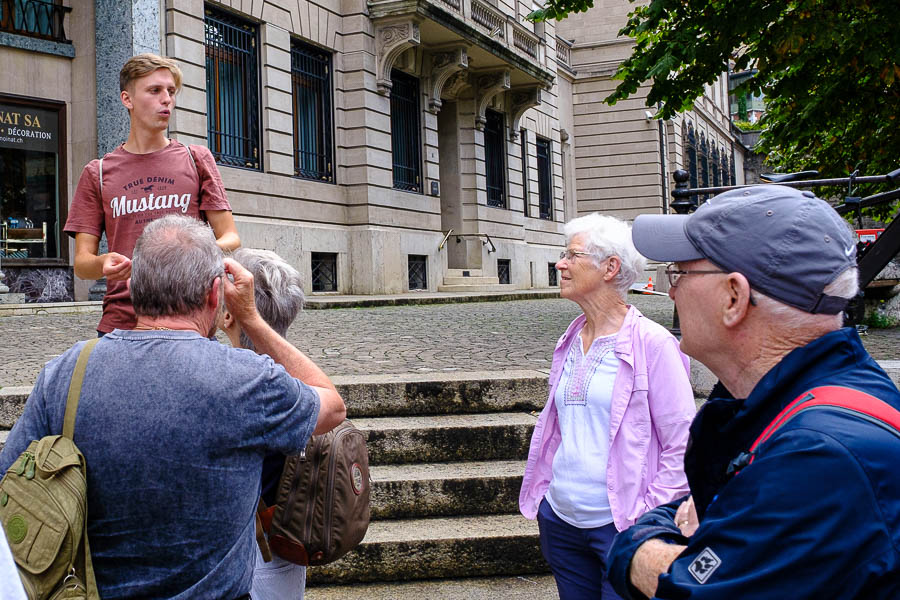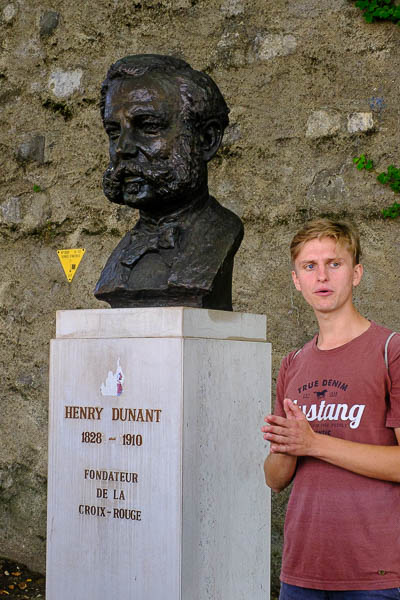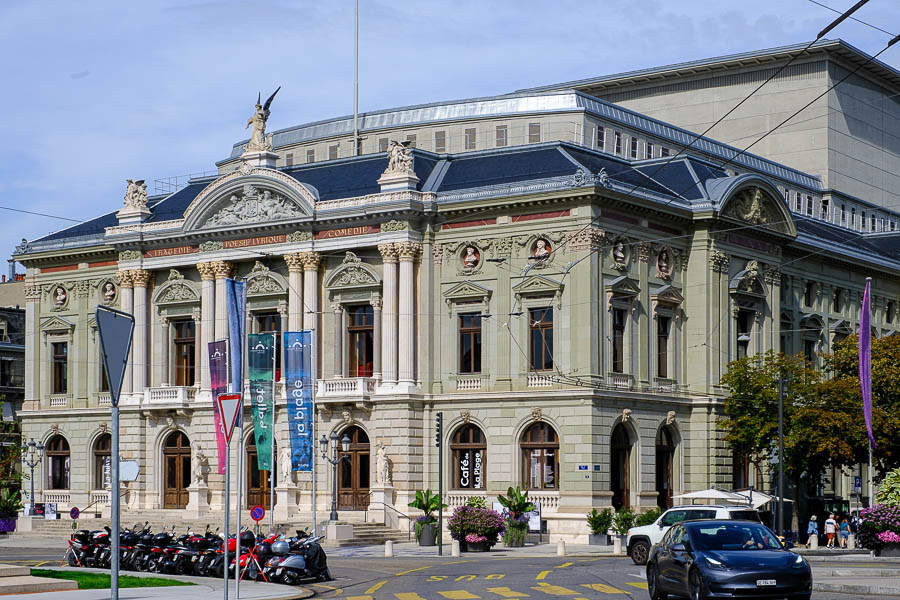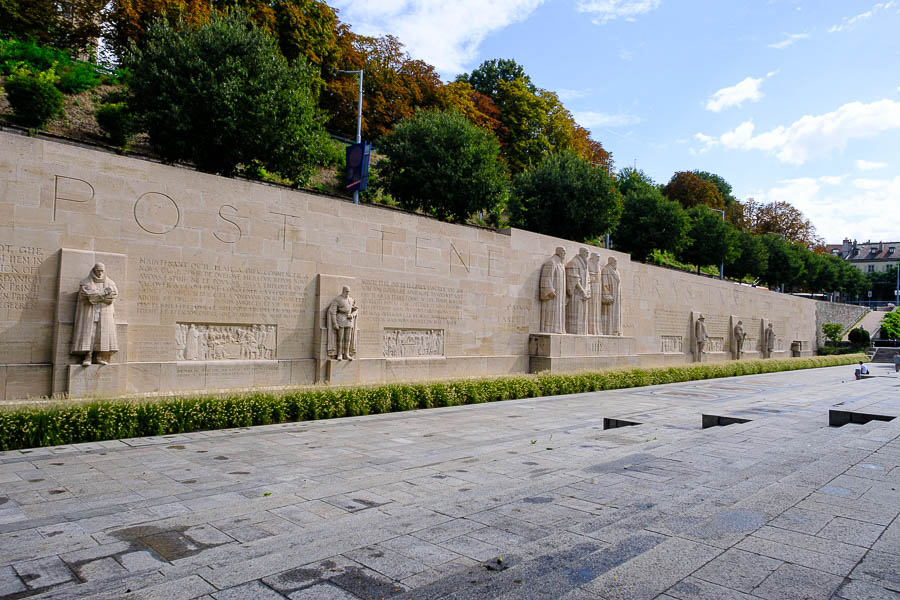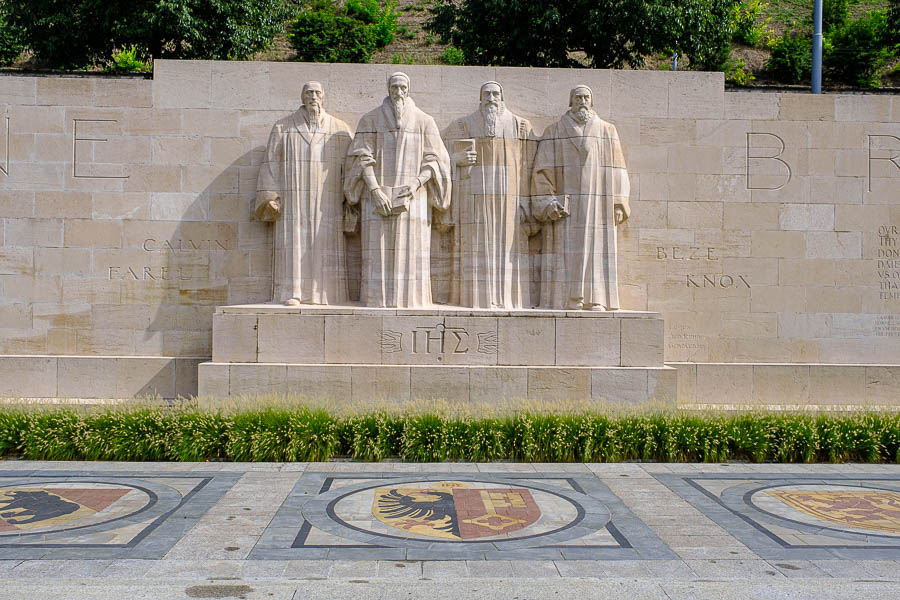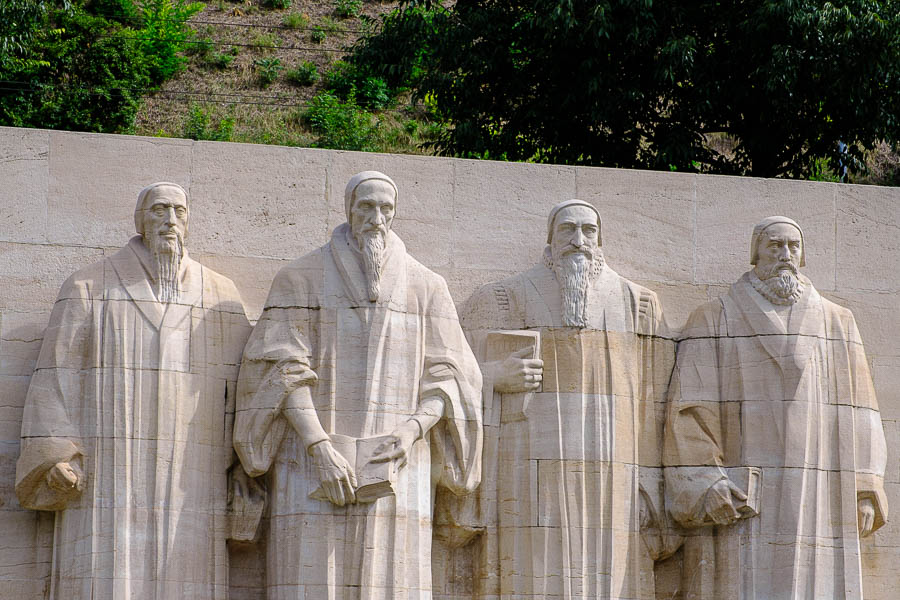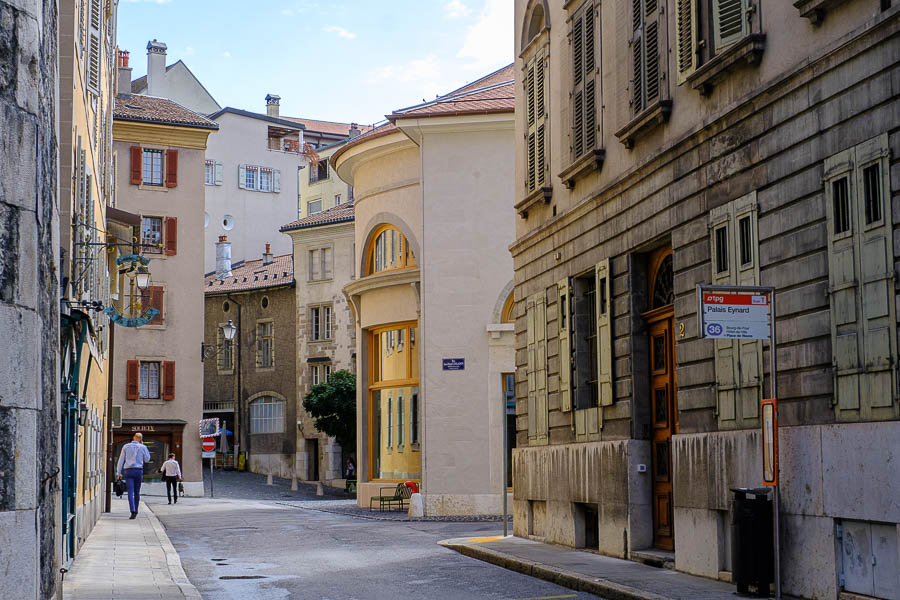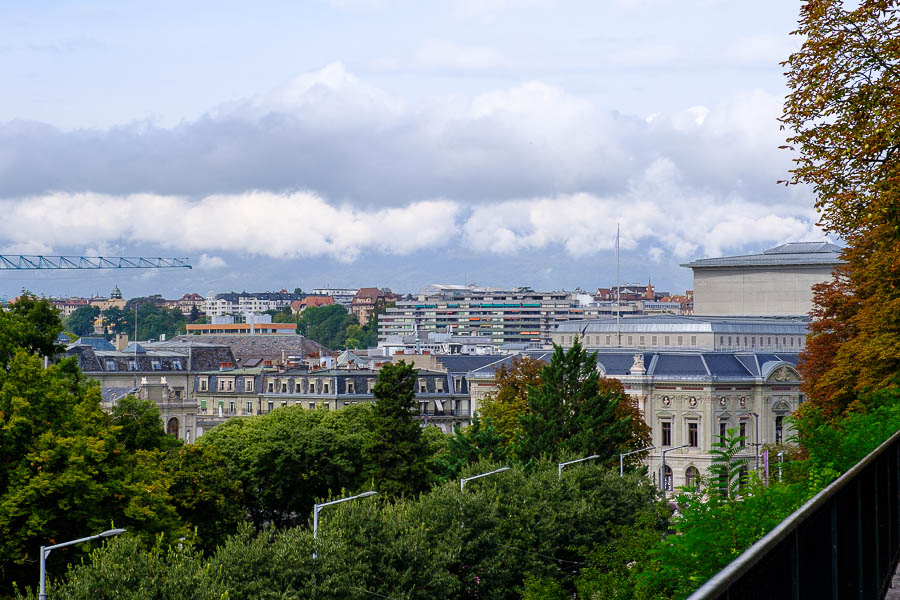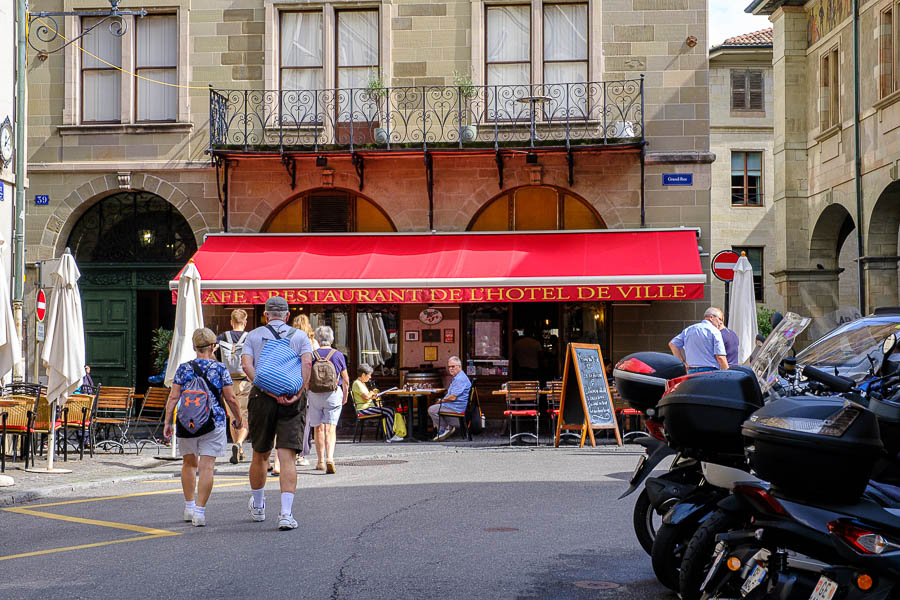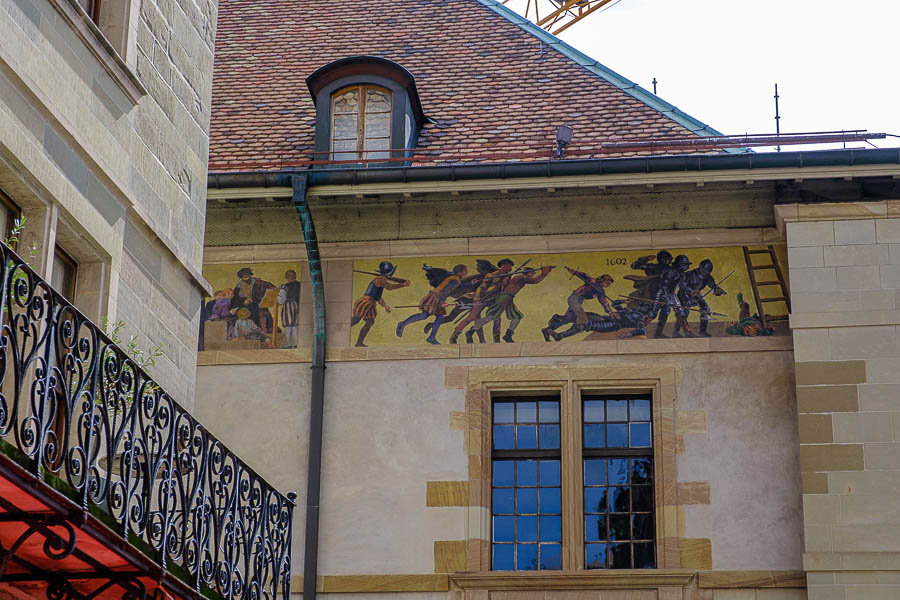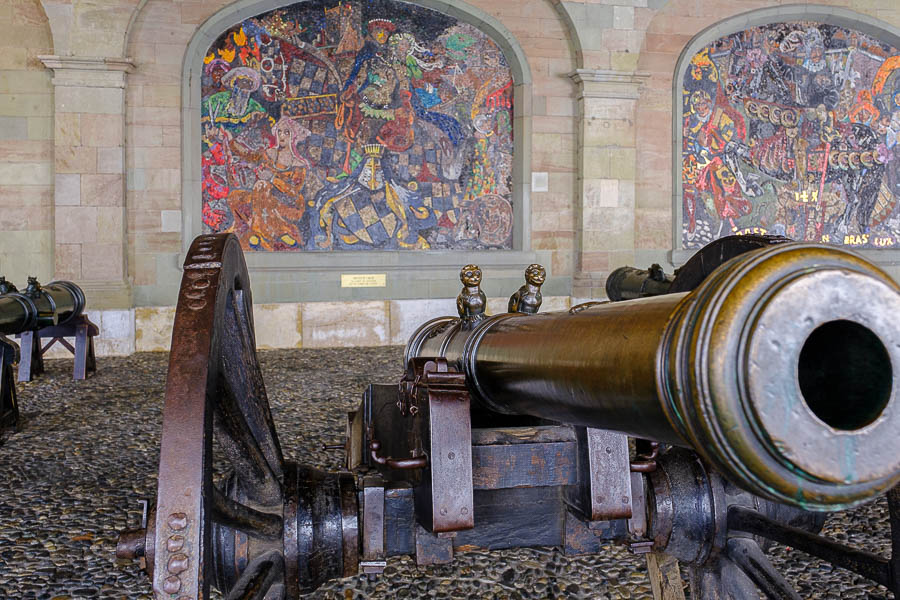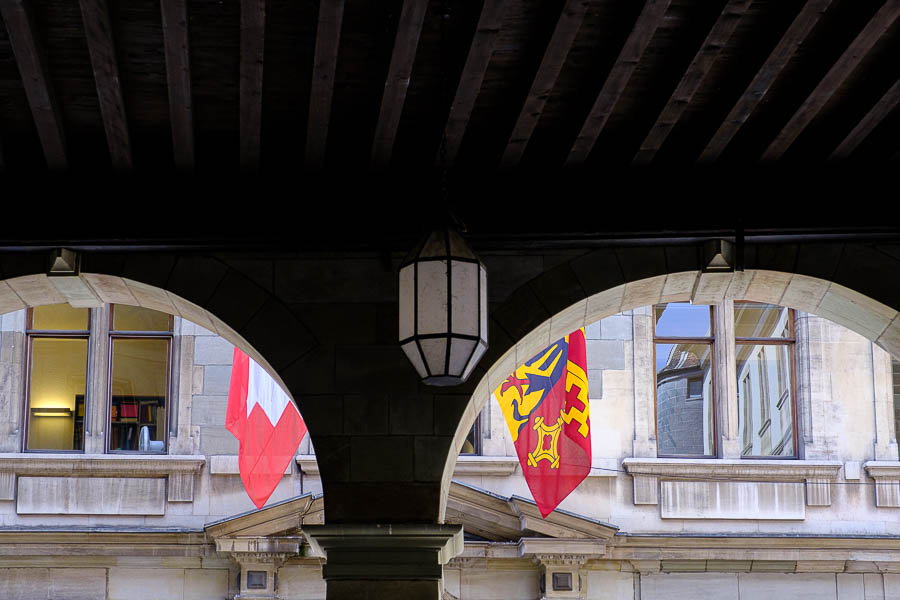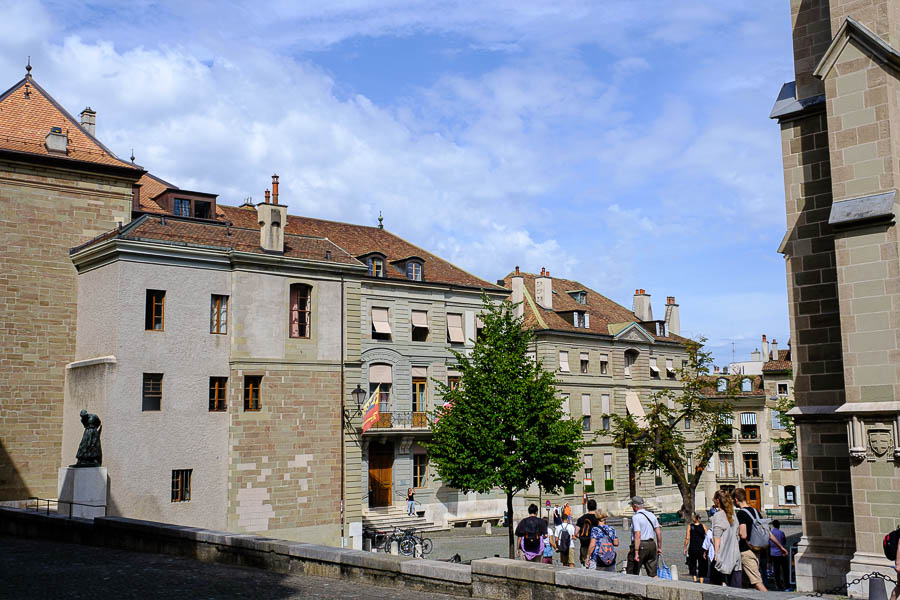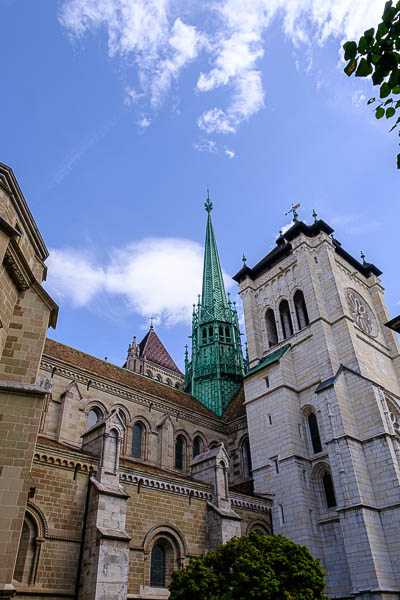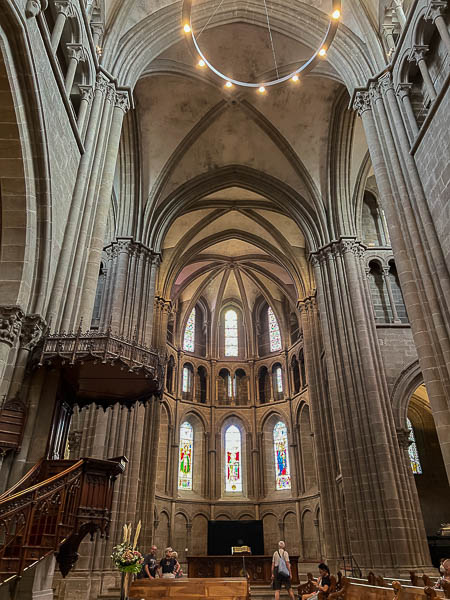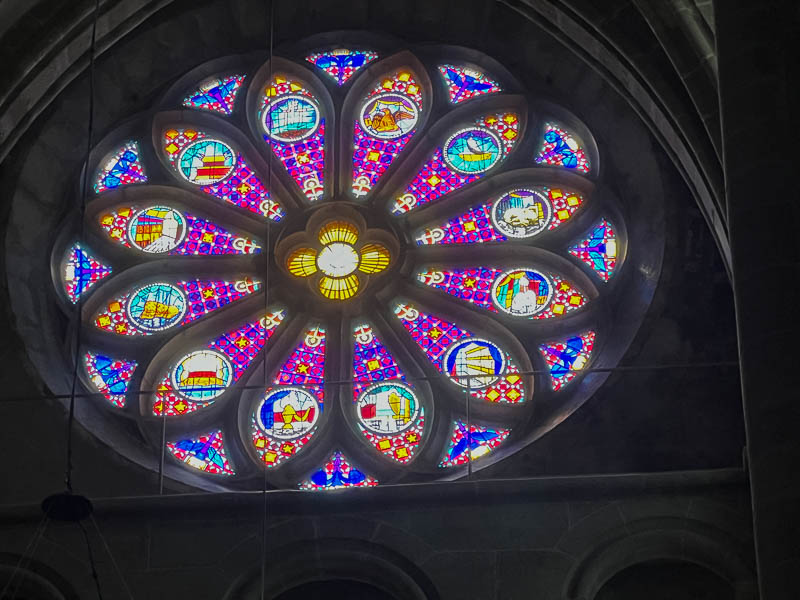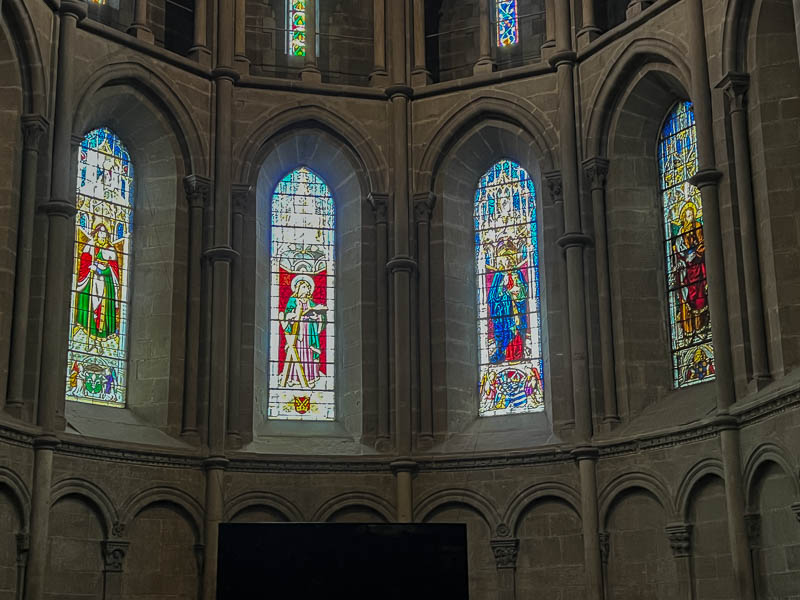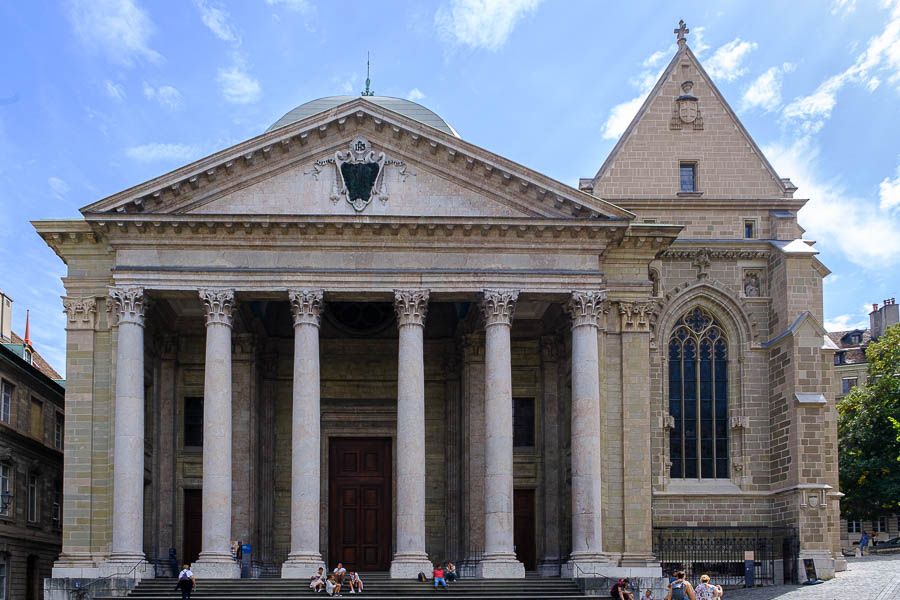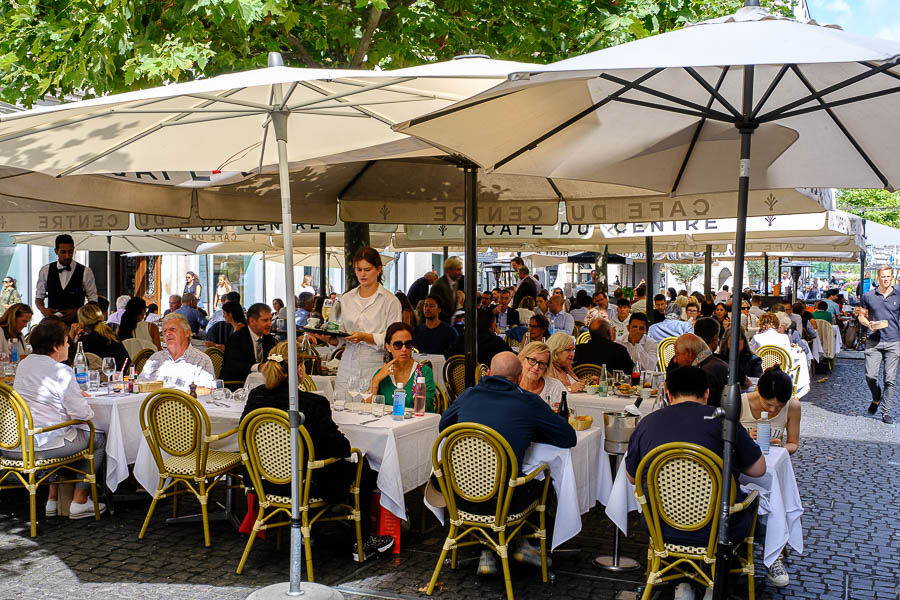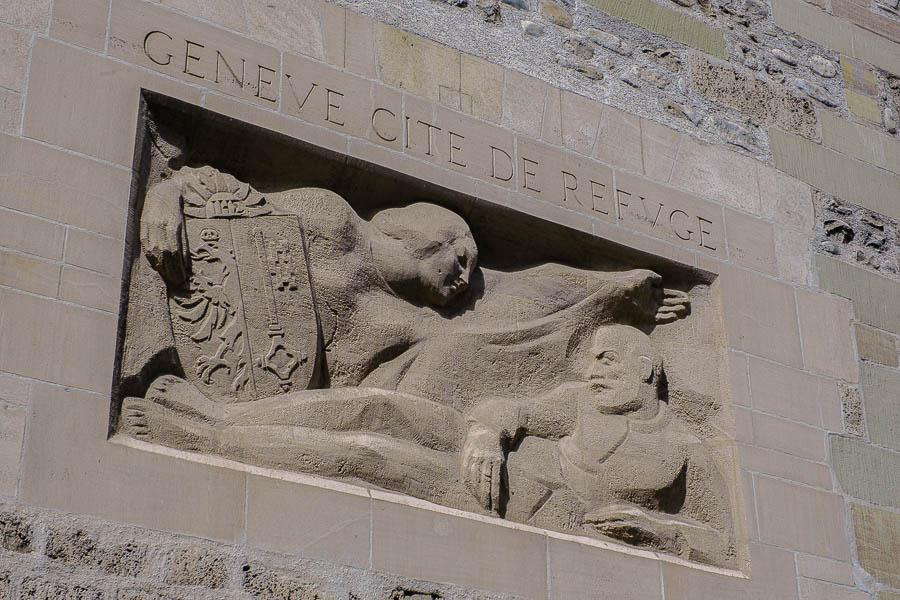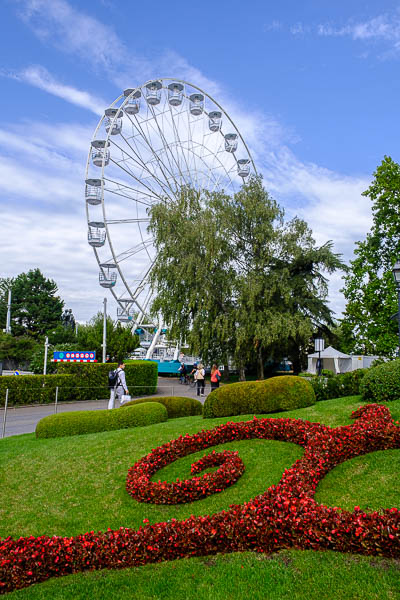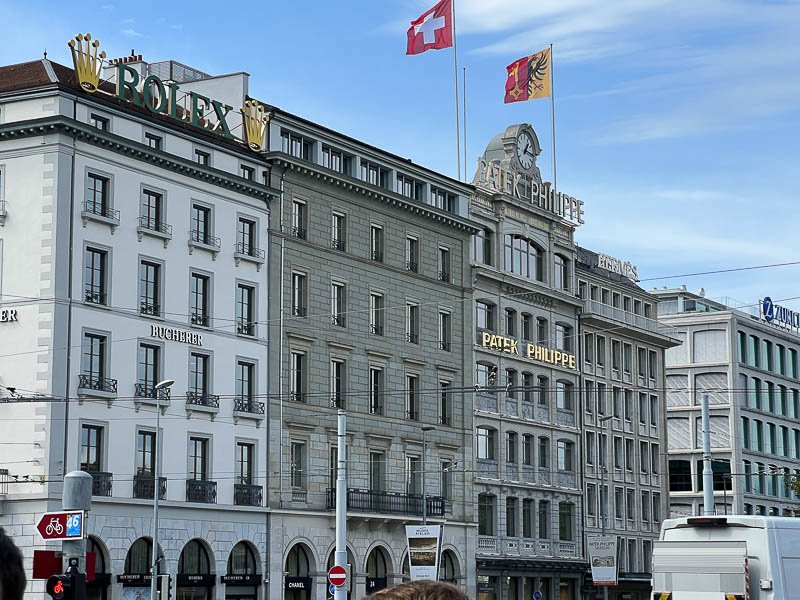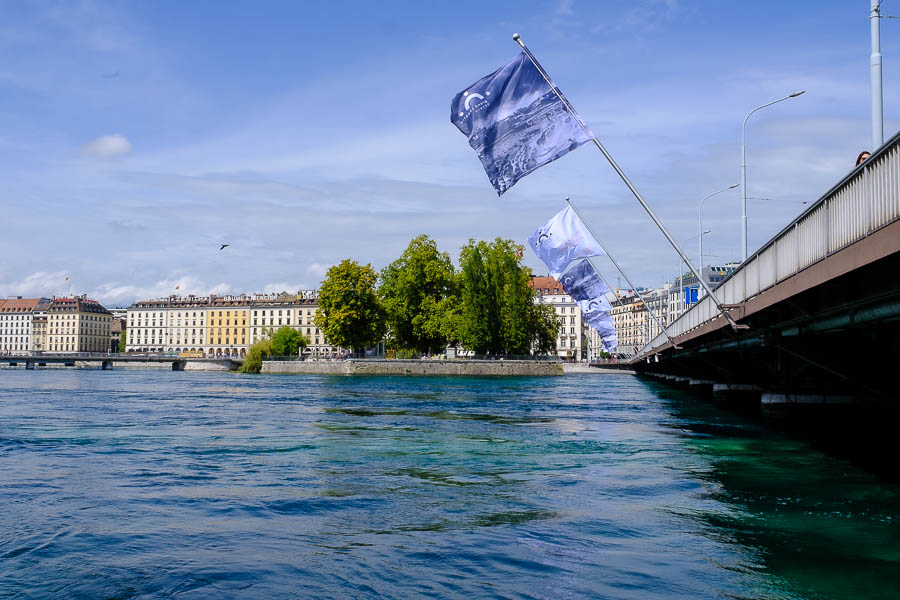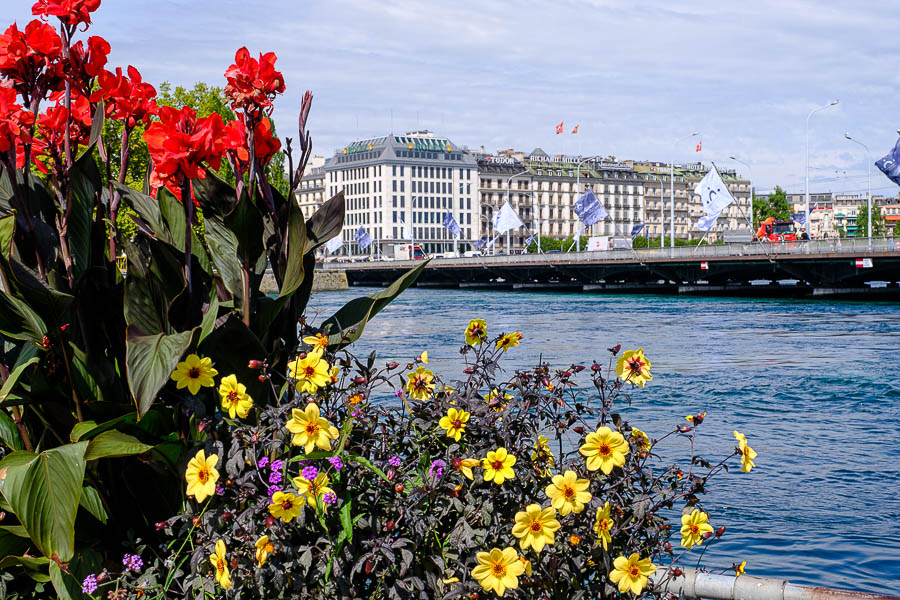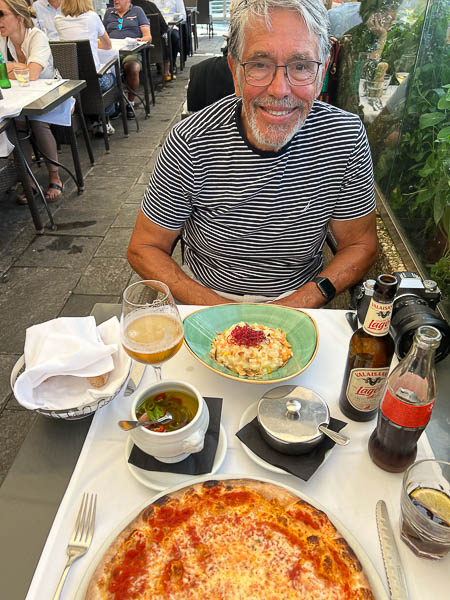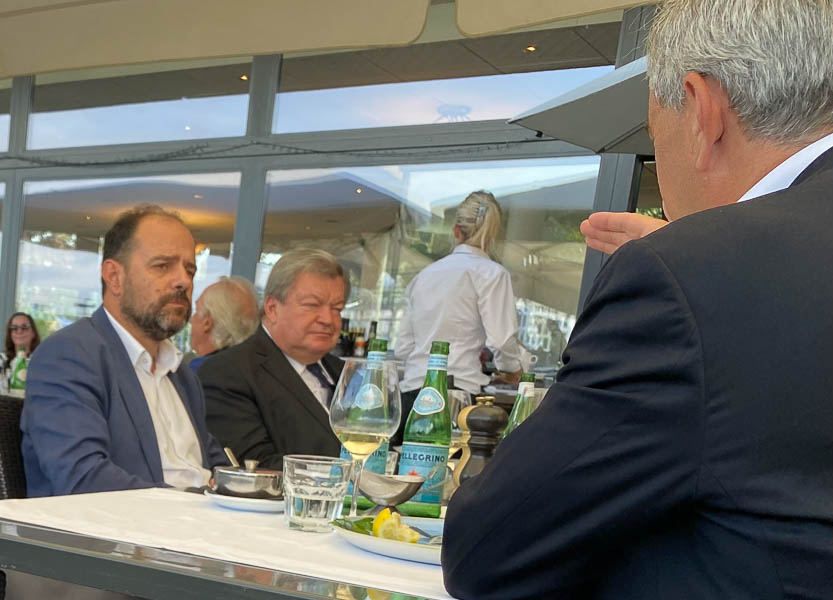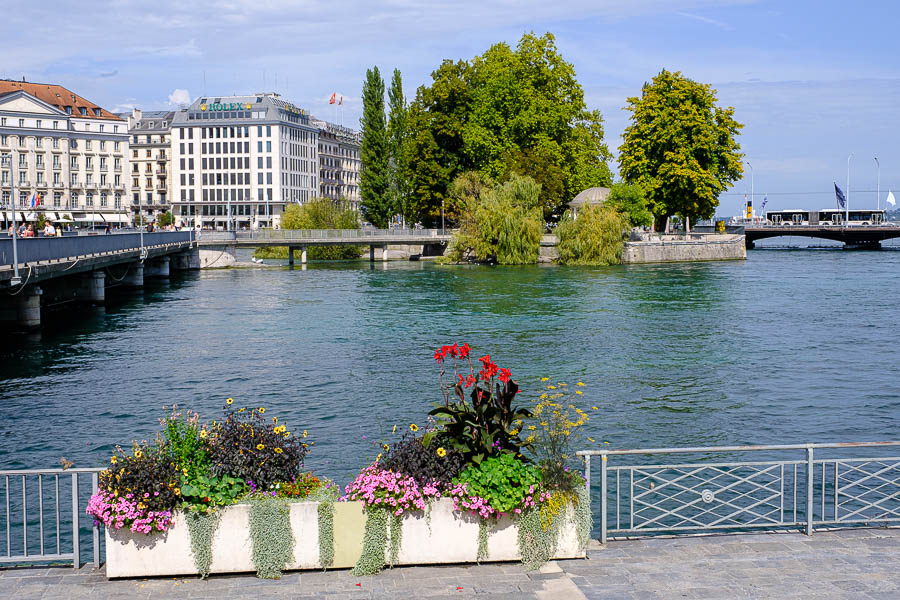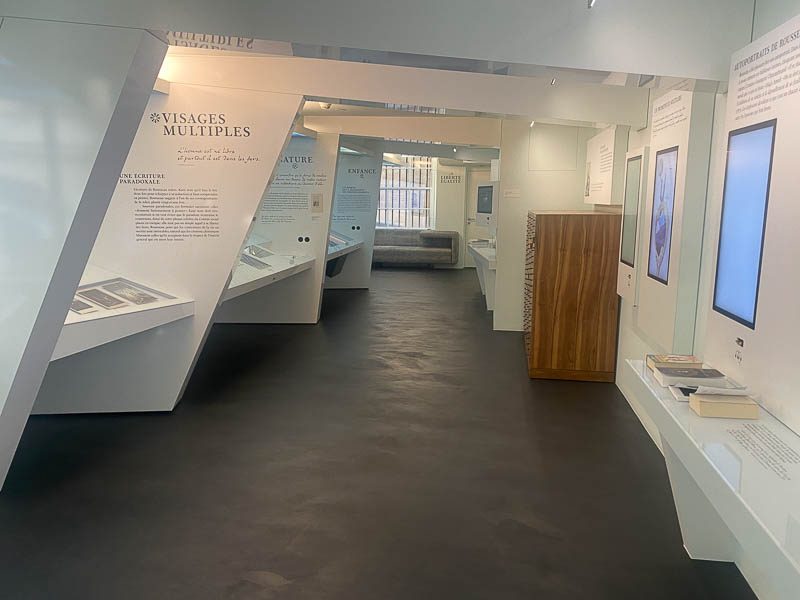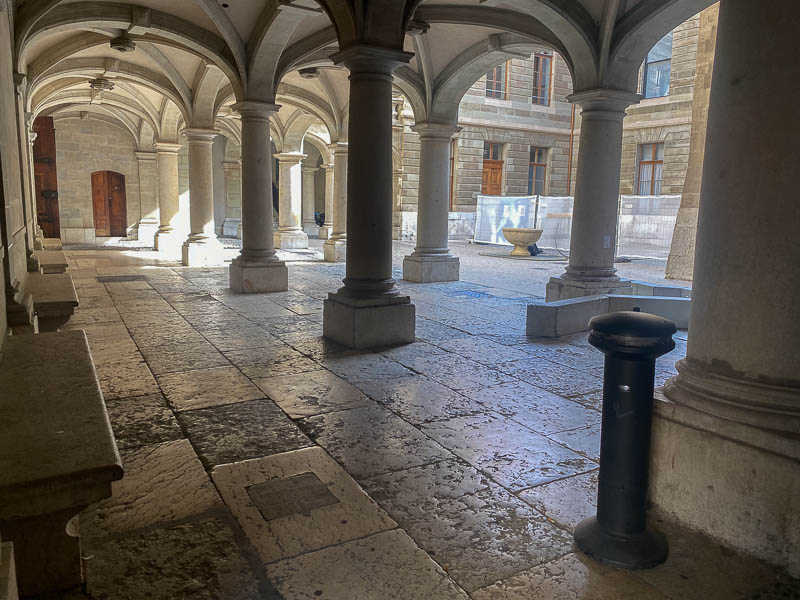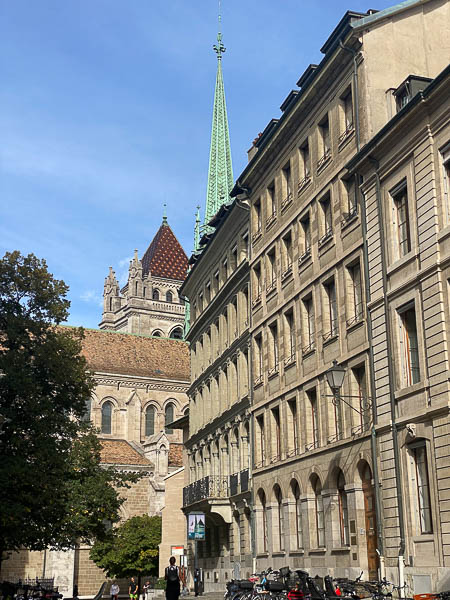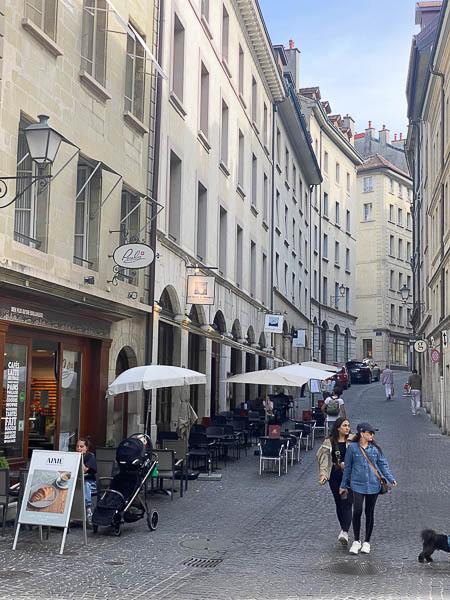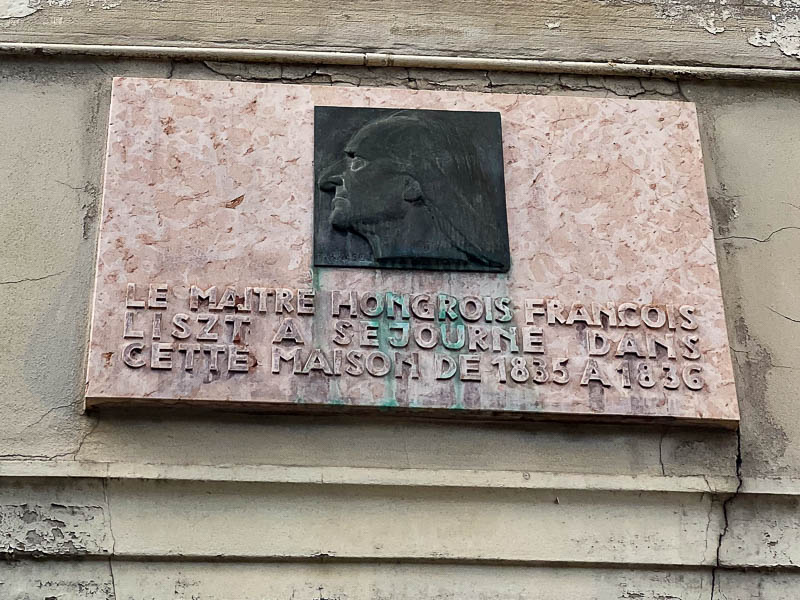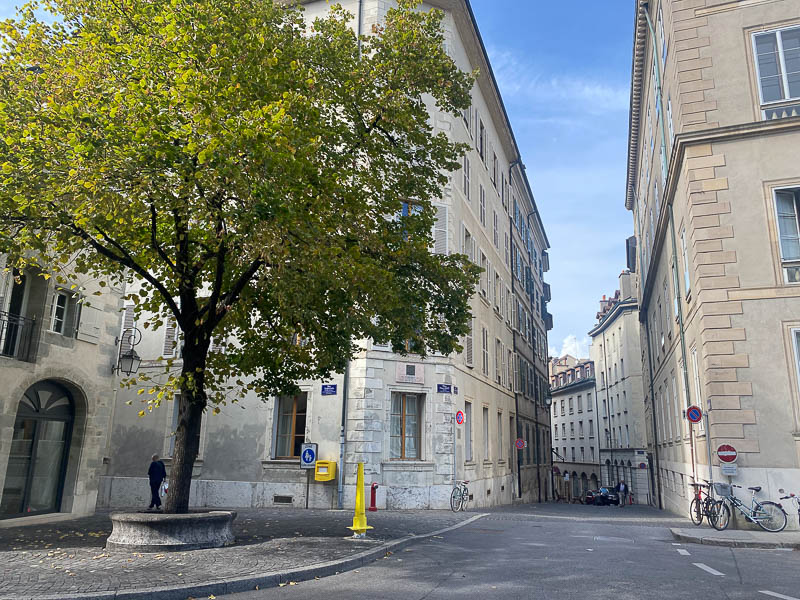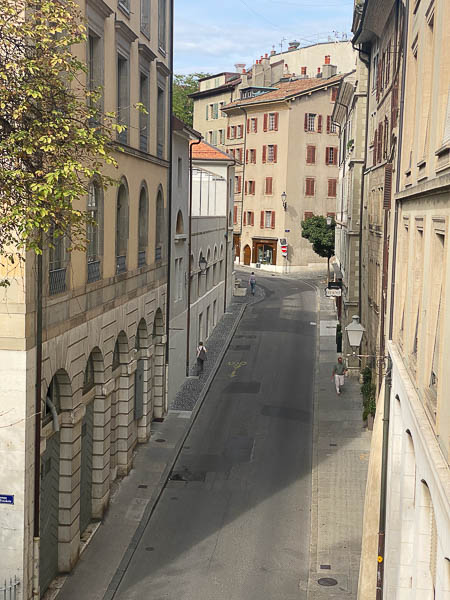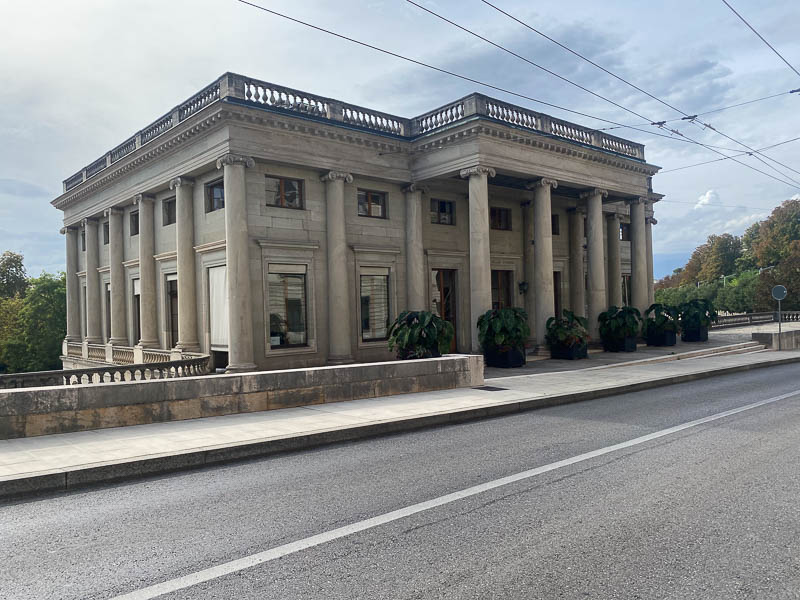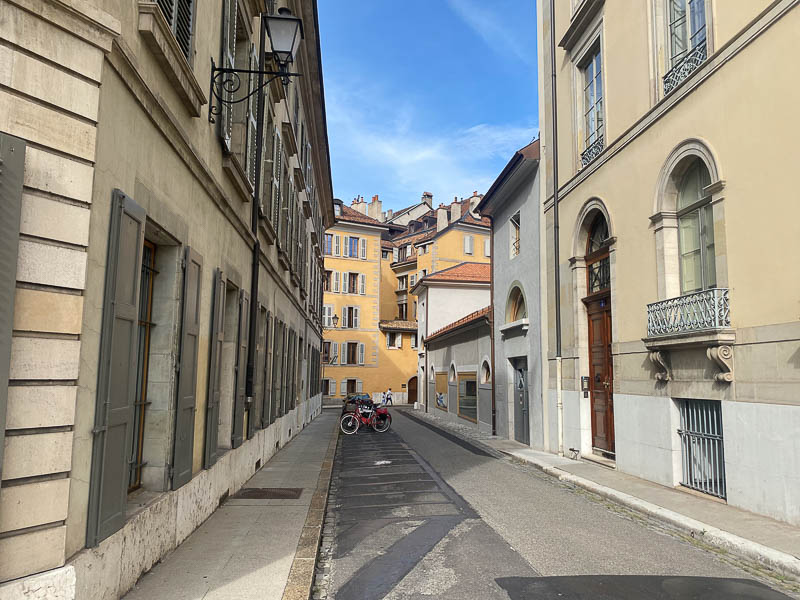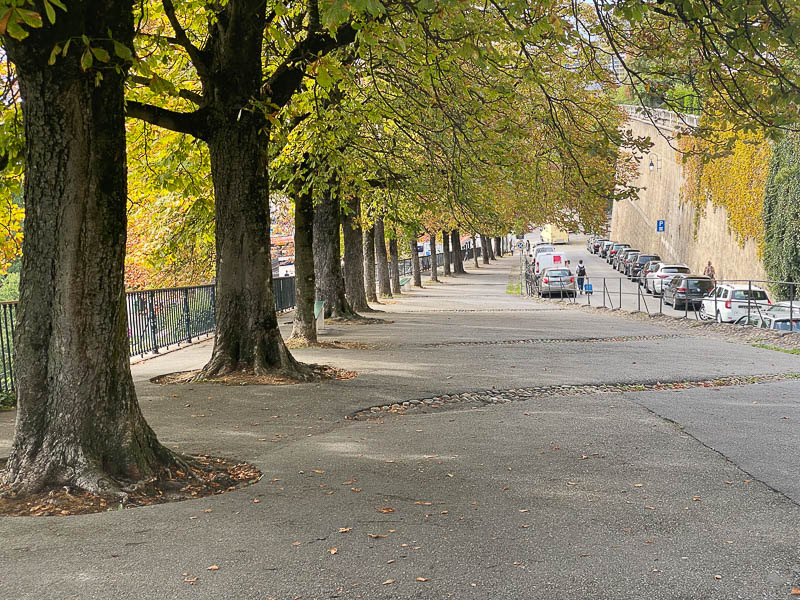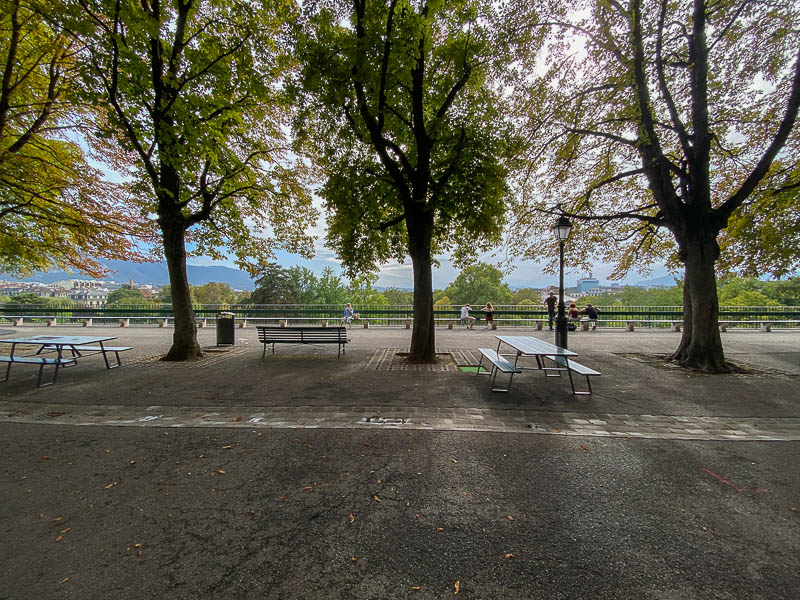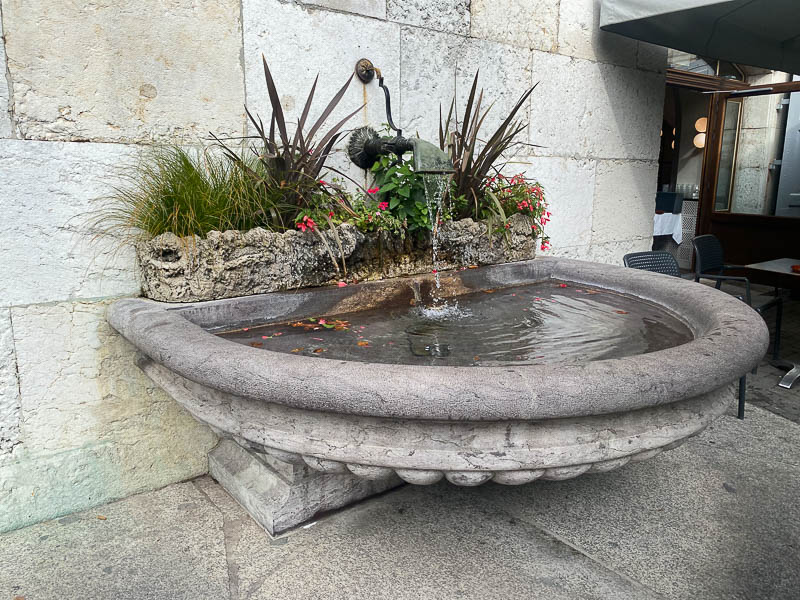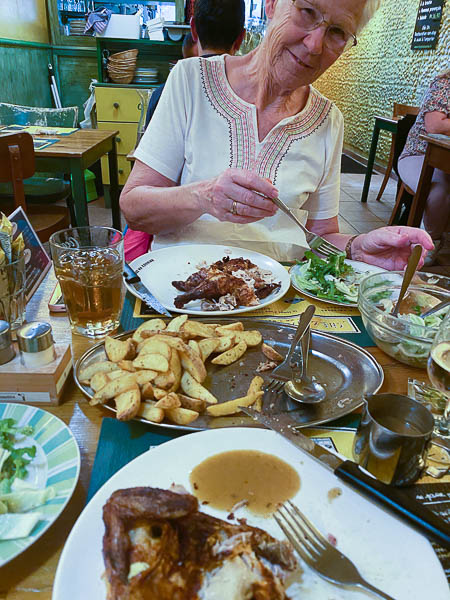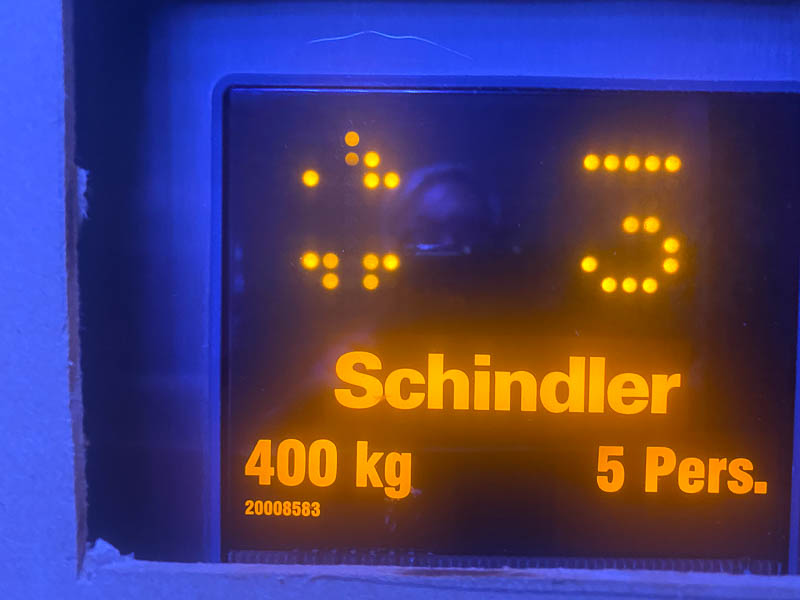We’ve put in a good, honest day’s effort out on the tourist trail here in Geneva. We were seated by the Rhone River by 10 AM, about 10 minutes downhill from our apartment, eating breakfast and waiting for our 11 AM departure for a free walking tour of Geneva. Next door to the café was one of the ubiquitous Coop grocery stores. After pantomiming brushing teeth, Judy found the Colgate, so our breath will be tolerable for Israel.
The meeting spot was at the outlet end of Lake Geneva, which forms the Rhone River. The Morteratsch Glacier that we visited with Carter contributes to the Rhone so, who knows, some of the glacial melt we saw with Carter may be the same water that we’re seeing today. The Rhone leaves Geneva and flows into the Mediterranean just below Avignon, France.
Our guide on the two-and-a-half hour-long trek, Nickolas, recently graduated with an undergraduate degree in law and is starting work on his master’s degree. He’s a native of Geneva, speaks excellent English and provided a good overview of life in Switzerland and Geneva, it’s history, culture and so on.
We’ve done these “free” walking tours before, most recently in Porto, Portugal and if you’ve got the stamina, it’s a fun way to get to know a city. Much better than a bus, that’s for sure. Our group was large, maybe 25 people, so Nickolas made out OK in tips I’ll bet. This tour shared one characteristic with all the other free walking tours we’ve been on: it was mostly carried out on the side of a mountain – lots of huffing and puffing – but we made it OK.
All males in Switzerland are required to perform service, typically in the army but other options exist. Nickolas has elected to do social service; his first assignment was an admittedly cushy job as a summer camp counselor but he could end up washing dishes in a hospital or nursing home. They will be voting soon to make service required by women, too.
Switzerland defines its uniqueness in two ways: as a direct democracy and as a neutral nation.
Citizens vote to elect representatives to the federal and canton legislatures. These bodies pass laws. In the case of the Federal legislative branch, the joint body (there are two houses) elect seven-person federal Councilors body. This body is the administrative branch. One member is elected as President each year but that role is largely ceremonial. The federal constitution dictates that the members of the Council must be balanced by political party and gender.
Laws passed by the legislature are subject to review by a supreme court but any citizens can obtain 50,000 signatures to cause any law, no matter how trivial, to be subject to a vote by the citizens.
Everything here is expensive. Swiss citizens pay a lot for health insurance policies, but they don’t cover much. Higher education is expensive, but few Swiss leave their home cantons for university, staying at home instead with Mom and Dad.
We went by a number of historic sites. The bridge on which our tour started crosses the Rhone. Julius Caesar came to Geneva in 56 BCE and ordered the bridge to be destroyed. Why? He was sick and tired of the German tribes infiltrating the lands of the Helveticas to attack his troops. Geneva was a key border town. It remains a border town today, being almost surrounded by France. So far, I haven’t missed a turn and crossed the border but I’ll have another chance on Thursday. Part of the Geneva airport is in France.
Switzerland did have a civil war, maybe 20 years before the U.S. civil war. The issue was religion: the Catholic cantons wanted to secede; the Protestants wanted them to stay. The Protestants prevailed. However, the war was fought in such a way that only about 100 people lost their lives. Reuniting the country proved to be easy.
The “neutral” part of Swiss identity revolves around a legal definition by which neutrality is defined as not participating in someone else’s war and treating combatants of a war equally in terms of arms shipments and use of Swiss territory as a path to transport goods. As long as Switzerland treats both sides equally, it’s neutral.
The Russian invasion of Ukraine is testing Swiss identity as a neutral state. Can Swiss, as they have, support Russian sanctions without losing neutral status? By the strict definition, the answer is yes, but the situation is straining Swiss opinion, which is based on an understanding broader than the legal definition.
We found another of the Swiss’s famous “bigger, longer, best” landmarks. We had a lot of fun with Carter whenever our guide pointed out the longest tunnel or whatever. Today it was the longest wooden bench in the world! Not the longest in Europe, Switzerland, the Alps or the Canton of Geneva, but the longest in the world! Sixty-one sections (I counted) and 120 meters in length (I looked it up on Wikipedia). Originally built in 1767. It’s a five-minute walk from our apartment.
Speaking of famous things around here j, it turns out that Jean Jacque Rosseau, the 18th century philosopher, grew up in a house about 10 doors down from our apartment. We visited the small museum on the site and while it was mostly in French the English guide helped us get an idea of this man’s views of the world.
Another close-by neighbor was Franz Liszt, the French composer. He ran off with another man’s wife, a countess, to Geneva where he got a job teaching music. They had four kids and lived here for four years. They broke up and Franz hit the road performing to raise money to fund a statue of Beethoven in Bonn.
Think Liszt was a cad for running off with another man’s wife? Rosseau had five kids with his wife. He took them and placed them in a Paris orphanage. That was apparently common back then. As many as one-third of Paris kids ended up that way. A high percentage died in orphanages.
We’d planned an afternoon visit to the International Reformation Museum to learn about John Calvin and his buddies. However, the museum is temporarily closed for, wait for it, reformation. So, we did the Rosseau museum instead and I walked to the Liszt apartment site, marked by an easy-to-miss plaque.
Now we’re chilling in the apartment with a glass of wine. We’ll head out for dinner somewhere nearby, exact spot yet to be defined and that will be selected by wandering around. Soon, we’ll be back in the tender graces of a tour company where all such weighty decisions will be made for us. “Bags out by 7, breakfast at 8 and on the bus no later than 9.” Can’t wait.
For dinner , we had to wait until almost eight for a thunderstorm to pass by. We then ventured out and found a place not far from the apartment with a unique distinction: three times as many dessert choices as main course options. It’s a chicken joint, plain and simple. You can have a half chicken rotisseried, chicken breast or chicken tenders. That’s it. There were at least eight or nine dessert options. We did a half chicken each, drinks and crème Brule and a milk shake for about what we paid for that room service bottle of wine back at Le Mirador.
Our objective for tomorrow is to take a bus – really one of those trams with overhead electrical lines – to the International Red Cross/Red Crescent headquarters and museum. Nicolas told us it’s one of his favorite museums. So off we go.
